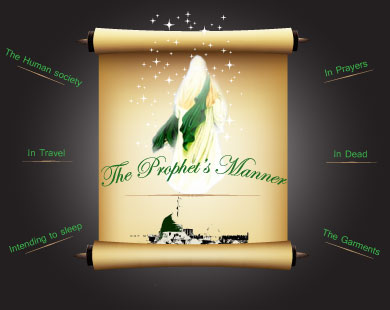What is related
129. If he saw on his body a pustule, he’d forbid God and roar out loudly with
prayers and say to those who comfort him:
“If God wanted to extol what is little, he’d extol it,
and if he wanted to belittle what is great, he’d belittle it”.
130. If he (PBUHH) walked in a funeral, he’d be filled with sorrow, during which
he’d increase the talk of the soul and lessen the talk of the mouth.
131. If anything made him sad, he’d resort to praying and fasting; and if he
befell into misery, he’d quickly ablute and prays two
units (rak’aa) and say: “O God! I did what
you ordered us, accomplish for us what you promised” (from replying to our prayers and patience).
132. It is favorable that no one enters the female’s grave, except they who are
allowable, from the people.
133. It is also favorable to spray water on the grave:
Which should be directed towards the prayer’s niche, start burying from head to
toe, then turn around the grave from the other side and then spray the center of
the grave.
134. It is favorable, according to the prophet’s commandments that the grave be
raised 10 centimeters, also that it be flat and not slanted.
135. It is favorable to provide food for 3 days for those passing into misery,
by sending it to them, and not eating with them as this is a custom of the
ignorant.
136. And it is so much favorable to floss several times a day, especially at
prayer times, before and after bed, and at dawn. (The floss meant here is the
natural flosser which is a stock that cleans and massages the teeth.... and the
best is made from Arak trees, available in Saudi Arabia and it is sold around
the holy Ka’ba.... and pilgrims can purchase it easily).
137. Celebration washes (ghusul) are for purification, for those asking needs
and following the commandments.
* Book: The Prophet's Manners. By: Sayed Sami Bin Hassan Khadra



















